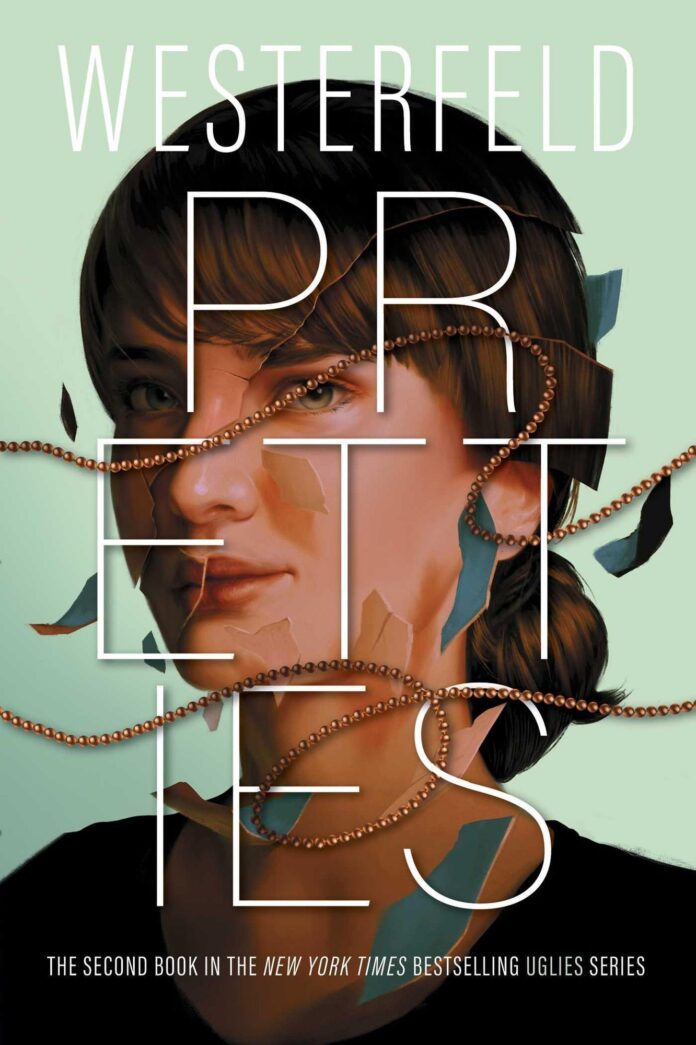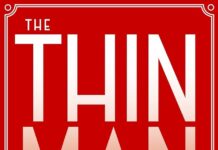In a world where appearance dictates status and conformity is both celebrated and enforced, Scott Westerfeld’s Pretties offers a provocative exploration of beauty, identity, and societal control. As the second installment in his Uglies series, the novel delves deeper into a dystopian society’s obsession with perfection, challenging readers to reconsider the true cost of aesthetic ideals. This review takes a thoughtful look at how Pretties intertwines captivating storytelling with sharp social commentary, inviting an examination beyond the surface of its glossy facade.
Exploring the Intricate Balance Between societal Beauty Standards and Individual Identity in Pretties

In Pretties, Scott Westerfeld masterfully peels back the glossy veneer of society’s obsession with physical appearance to reveal the unsettling mechanisms of control hidden beneath. The conflation of beauty with conformity challenges the characters’ autonomy, forcing readers to question how much of their own identities are shaped by external expectations.Through the transformation of the protagonists into “Pretties,” the narrative illustrates a chilling loss of individuality, where the homogenized aesthetic masks a deeper, systemic suppression of free will. This dynamic interplay beckons us to reflect on how societal beauty standards-often celebrated-can together serve as tools for control and erasure.
Key Themes Explored:
Best-Selling Books in This Category
- Uniformity vs. Individuality: The tension between society’s demand for perfection and personal identity’s complexity.
- Beauty as Control: How physical appearance becomes a lever of power to dictate behavior and suppress rebellion.
- Resistance and Awareness: Moments when characters reclaim their senses and question imposed norms.
| Aspect | impact on Identity |
|---|---|
| Cosmetic enhancements | Homogenizes features; limits self-expression |
| Behavioral Modifications | Suppresses dissent; enforces social compliance |
| Social Interaction | Facilitates superficial connections; inhibits deep bonds |
A Deep Examination of the Dystopian Worldbuilding and Its Impact on Character Development

Westerfeld crafts a dystopian universe within Pretties that brilliantly intertwines societal control with the pursuit of perfection,creating a world both alluring and oppressive. The meticulous attention to environmental details-from the stark contrast between the controlled urban zones and the chaotic wilderness beyond-mirrors the psychological imprisonment of the characters. This setting isn’t merely a backdrop; it acts as a catalyst shaping every decision, fear, and desire, allowing readers to viscerally experience the tension between autonomy and conformity. The use of advanced technology as a tool for surveillance and enforced beauty standards cleverly embeds a critique of modern societal obsessions, making the dystopia feel unsettlingly familiar.
Character evolution in this setting is deeply influenced by the rigid dichotomies imposed by their world. The protagonists’ struggles to reclaim identity within a system designed for uniformity lead to layered, nuanced portraits of rebellion and self-discovery. Key elements fueling this development include:
- Forced cosmetic transformations: shaping not only appearance but cognitive responses
- The dichotomy of freedom and control: emotional suppression versus awakening
- Group dynamics: peer pressure accentuated by a hyper-curated social hierarchy
| Element | Impact on Characters | Symbolic Meaning |
|---|---|---|
| Cosmetic Surgery | Alters perception and loyalty | Loss of genuine self |
| Urban design | Limits exploration of identity | Physical and mental imprisonment |
| Social Hierarchy | Creates conflict and alliances | Power structures vs individuality |
How Themes of Control and Rebellion Are Woven Seamlessly Into the Narrative’s Core

within the intricate world of Pretties, control acts as the invisible thread binding every aspect of society. The governing authorities enforce conformity not only through direct regulation but also via subtle psychological manipulation,crafting a veneer of beauty and perfection that masks an underlying rigidity.This control is perpetuated through technology, social expectations, and the ubiquitous presence of Watchdogs, who ensure that rebellion remains a whispered thought rather than a loud cry. The narrative meticulously reveals how control infiltrates identities, dictating behavior while suppressing individuality, thus painting a chilling portrait of a society where freedom is sacrificed at the altar of order.
Yet, embedded within this tightly wound system, rebellion finds its breath and form in unexpected places. Characters challenge prescribed roles with quiet defiance,their dissent symbolized not only by overt actions but by small,meaningful moments of resistance.These flickers of rebellion illuminate cracks in the otherwise impenetrable armor of control, suggesting that humanity’s core desire for autonomy can never be fully extinguished. The novel smartly juxtaposes rebellion’s fiery spirit against control’s cold precision, weaving them into a tapestry that questions the cost of perfection and the resilience of the human will.
- control Mechanisms: Surveillance, Social Conditioning, Enforced Beauty Standards
- Forms of Rebellion: Silent Subversion, Intellectual Awakening, Symbolic Acts
- Impact on Identity: Loss, Discovery, Transformation
| Aspect | Control | Rebellion |
|---|---|---|
| Expression | uniformity enforced | Unique flair emerges |
| Technology | mind-altering drugs | Hackers and leaks |
| Social Order | rigid caste system | Challenges to hierarchy |
The Role of Technology as Both Oppressor and Catalyst for Change in Pretties’ Society
Technology in Pretties serves as a double-edged sword, meticulously sculpting the citizens while simultaneously anchoring them in a rigged societal framework. On one hand, it is an omnipresent force, seamlessly integrating into every facet of life-from *mind-altering cosmetic procedures* to *constant surveillance mechanisms.* This omnipresence enforces conformity and suppresses individuality, creating a visually flawless yet emotionally imprisoned population. the government’s use of advanced biotech and neural implants ensures that dissent and discomfort are chemically and psychologically neutralized, effectively transforming technology into a tool of oppression that curtails freedom under the guise of beauty and happiness.
- NeuroMods: Control emotions and perceptions, blurring reality.
- Cosmetic Engineering: Standardizes appearance to eliminate societal disparity.
- Surveillance Systems: Enforce behavioral conformity and prevent rebellion.
Yet, within this tightly controlled environment, technology also acts as a subtle catalyst for rebellion and change. The very tools designed to suppress dissent inadvertently plant the seeds of self-awareness and resistance, especially as characters begin to *hack* their own minds and question the imposed norms. This paradox unfolds through secret exchanges of facts and rogue modifications, hinting at technology’s power to not only constrain but also to empower individuals aching for authenticity. As the narrative progresses, technology evolves from a mere instrument of control into a beacon of potential liberation, challenging the static status quo and inspiring a fractured society to imagine new possibilities.
Analyzing Protagonist Tally Youngblood’s Journey From Compliance to Self-Discovery
Tally Youngblood’s metamorphosis is not just a physical transformation driven by society’s obsession with appearance; it is a profound journey from blind compliance to the nuanced realm of self-discovery. Initially, Tally embodies the perfect citizen of the Pretty world-eager, obedient, and wholly immersed in the superficial allure of cosmetic perfection. But beneath this facade lies simmering doubt and latent rebellion, which gradually unravel as she confronts the limitations imposed by the regime.Her progression is marked by key moments that strip away layers of conditioning, revealing a quest to reclaim individuality and authenticity in a world that insists on conformity.
The evolution of her character can be seen as a tug-of-war between external control and internal awakening. This tension is vividly illustrated through her interactions and experiences,which challenge her perception of beauty,loyalty,and freedom. The table below encapsulates pivotal phases in tally’s journey, highlighting her shifting mindset against the backdrop of a rigid societal structure:
| Stage | Tally’s State | Symbolism | Narrative Impact |
|---|---|---|---|
| Pre-Transformation | Naïve Complier | Mask of Conformity | Sets up societal expectations |
| During Transformation | Conflicted Observer | Cracks in the Mirror | Begins questioning norms |
| Post-Transformation | Awakened Rebel | Breaking the Mold | Challenges and reshapes society |
- inner Conflict: Tally’s struggles represent the clash between societal dictatorships and personal freedom.
- Growth Catalyst: Encounters with characters who embody resistance spark her critical self-evaluation.
- Empowerment: Her eventual embrace of imperfection becomes a radical act of defiance.
The Emotional and Psychological Layers That Add Depth to Westerfeld’s Storytelling
Westerfeld masterfully weaves a complex emotional tapestry that challenges readers to confront the unsettling interplay between identity and conformity. Beneath the surface of glittering facades and flawless appearances lies a raw exploration of self-awareness and resistance. The protagonist’s journey navigates the tension between societal expectations and personal autonomy, revealing the profound psychological cost of enforced beauty. This duality invites readers to reflect on their own definitions of freedom and the emotional sacrifices we make in pursuit of acceptance.
The narrative further deepens through its nuanced portrayal of internal conflict and fragile human connections. Sensory details and character-driven moments highlight the vulnerability hidden behind engineered perfection. Key emotional touchpoints include:
- Alienation - The isolation felt despite-or because of-the pressure to conform
- Rebellion - Subtle acts of defiance that reveal cracks in the systemic control
- Acceptance – The bittersweet reconciliation with both one’s flaws and imposed identities
| Emotional Layer | Impact on Story | Reader Connection |
|---|---|---|
| Fear of Loss | Drives tension and urgency | Evokes empathy and suspense |
| Hope for Change | Propels character growth | Inspires reflection and optimism |
| Conflicted Identity | Creates psychological depth | Forges emotional resonance |
Stylistic Choices that Enhance the Tension and Pacing Throughout the Novel
Westerfeld masterfully utilizes a blend of sharp, succinct prose and vivid imagery to maintain a relentless momentum that propels the narrative forward. His intentional choice of short, punchy sentences during moments of high stakes creates an almost cinematic effect, mirroring the rapid heartbeat of the protagonist’s experiences. This stylistic approach not only captures the reader’s attention but also mirrors the claustrophobic pressure cooker environment of the world he builds, where every decision is weighted and every moment counts. Additionally, the strategic alternation between intimate first-person narration and broader societal commentary draws readers closer to Tally’s internal struggles while simultaneously reminding them of the oppressive external forces shaping her reality.
Stylistic tension is further amplified through the use of contrasting elements that underscore the novel’s thematic dualities. Consider the following techniques that keep readers on edge:
- Juxtaposition of ordinary teenage dilemmas with dystopian control: This heightens the dissonance and unpredictability of Tally’s journey.
- Fragmented dialogue and internal monologue: These fragments mimic the fractured identity struggles pervasive throughout the story.
- Layered symbolism: Objects and events often carry dual meanings, fueling subtle suspense.
| Stylistic Element | Effect on Tension and Pacing |
|---|---|
| Short Sentences / Paragraphs | quickens pace; creates urgency |
| Internal Conflict Narratives | Builds psychological suspense |
| Visual and Sensory Details | Immerses reader; heightens atmosphere |
| Sudden Shifts in Tone | Maintains unpredictability |
Why Pretties Remains Relevant to Contemporary Discussions on Appearance and Freedom
the enduring relevance of Pretties lies in its incisive exploration of how societal standards manipulate our understanding of appearance, identity, and freedom. Westerfeld crafts a world where beauty is not merely an aesthetic choice but a compulsory uniform, a tool wielded by powers to enforce conformity and suppress individuality. This dystopian lens magnifies contemporary anxieties about the impact of cosmetic culture,social media filters,and the pressure to attain an idealized self. By amplifying these themes, the novel compels readers to question the cost of compliance and the delicate balance between external allure and internal autonomy.
In a society obsessed with control masked as liberation, Pretties serves as a mirror reflecting both the promises and perils of technological and societal advancements. Its themes speak to ongoing debates around choice vs. coercion, especially concerning body modification and self-expression. Consider this comparison table showcasing key parallels:
| aspect | In Pretties | Contemporary Reality |
|---|---|---|
| Appearance | Enforced uniformity via cosmetic surgery | Widespread beauty standards & digital alteration |
| Freedom | Illusion masked by societal control | Debates on autonomy within cultural norms |
| Identity | Suppressed individuality for harmony | Negotiated selfhood amidst social pressures |
- Technological influence: Questions of enhancement and manipulation.
- Social conformity: The tension between fitting in and personal freedom.
- Psychological impact: how appearance standards shape self-esteem and agency.
Critical reflections on Moral Ambiguity and Ethical Dilemmas Presented in the Book
in Pretties, Westerfeld masterfully crafts a world where the lines between right and wrong blur, challenging readers to confront the fluid nature of morality. Through the protagonist’s journey, we witness the seductive allure of conformity juxtaposed with the haunting cost of individual freedom.The staged perfection society imposes is not presented as simply evil or good but as a complex web of motivations, fears, and desires. This nuanced portrayal forces us to question the ethics behind sacrifice for societal stability and prompts introspection on how much control is too much. The narrative does not hand down easy judgments but encourages readers to explore the grey areas where human nature and imposed order collide.
- Obedience versus Autonomy: The tension between following societal norms and asserting one’s individual will.
- Appearance as Power: How beauty becomes both a tool and a weapon, shaping identity and agency.
- The Cost of Utopia: Examining the ethical compromises behind a seemingly perfect society.
Westerfeld also delves deep into the consequences of choices made under duress, illustrating that ethical dilemmas rarely offer a clear path.The characters grapple with actions that could save or condemn, all while wrestling with the internal dissonance between their conditioned selves and their emerging consciousness.This friction is emblematic of real-world struggles where context, viewpoint, and survival often dictate morality more than fixed rules. Below is a brief reflection on how key ethical conflicts unravel within the novel:
| Ethical Dilemma | Character’s Choice | Implication |
|---|---|---|
| Conform or Rebel? | Tally’s oscillation between acceptance and resistance | Highlights costs of self-identity loss |
| Truth versus peace | Concealing harsh realities to maintain order | Creates fragility beneath societal veneer |
| Freedom at What Price? | Risking safety to regain autonomy | Questions value of security over liberty |
Recommendations for Readers Interested in Thought-Provoking Young Adult Dystopian Fiction
For readers drawn to the intricate balance of societal control and individual awakening found in Pretties, diving into other young adult dystopian novels will enrich your exploration of these themes. titles that excel at pairing sharp social commentary with layered characters often invite readers to question the price of conformity and the true nature of freedom. Consider exploring works that similarly delve into controlled societies, personal rebellion, and the uneasy tension between appearance and reality. These narratives don’t just entertain-they provoke reflection on the values shaping our own world.
Recommended reads to expand your journey:
- Delirium by Lauren Oliver – For a chilling perspective on love as rebellion against societal norms.
- Legend by Marie Lu – Combines high-stakes political intrigue with the struggles of identity in a fractured world.
- Matched by Ally Condie - Offers a subtle critique of choice and control wrapped in a seemingly perfect society.
- The Giver by Lois Lowry – A timeless classic that confronts the cost of a utopian ideal.
| title | Theme | Why It Resonates |
|---|---|---|
| Delirium | Love & Control | Challenges societal mandates on emotion. |
| Legend | Resistance & Identity | Blends action with moral ambiguity. |
| matched | Choice & Perfection | Raises questions about personal autonomy. |
| The Giver | Utopia & Memory | Explores the cost of sanitized perfection. |
The Impact of Westerfeld’s Writing Style on Audience Engagement and Immersion
Westerfeld’s prose in Pretties masterfully blends vivid imagery with a brisk, engaging rhythm that pulls readers into a world where beauty masks profound societal control. His use of sharp, concise sentences creates an immersive atmosphere, allowing the audience to experience the allure and danger simultaneously. The author’s knack for balancing detailed descriptions with fast-paced action keeps readers on edge, fostering a sense of urgency that mirrors the protagonist’s own internal conflicts. This combination not only holds the attention of young adult audiences but also encourages deeper reflection on themes of identity, conformity, and autonomy.
- Dynamic characterization: Relatable and flawed characters invite emotional investment.
- Layered World-Building: Intricate societal structures add complexity without overwhelming.
- Atmospheric Tone: Contrasts between glamor and control heighten tension.
| Element | Effect on Engagement | Audience Impact |
|---|---|---|
| Concise Sentences | Keeps pace brisk | Enhances excitement |
| Detailed Imagery | Builds vivid settings | Deepens immersion |
| Emotional Depth | Creates empathy | Strengthens connection |
Moreover, the writing style fosters a unique blend of detachment and intimacy, encouraging readers to both witness and experience the protagonist’s struggles. Through carefully modulated narrative voice and perspective shifts, Westerfeld invites the audience to question the façade of perfection while sympathizing with the desire to belong. this oscillation not only magnifies the emotional stakes but also makes readers question their own perceptions of beauty and control. The interplay of style and substance ensures that engagement extends beyond mere entertainment, transforming the reading journey into an evocative exploration of societal norms.
How Pretties Fits Within the Broader Uglies Series and Its Influence on the Genre
Pretties occupies a pivotal role in the Uglies series, acting as a bridge between the initial shock of societal control introduced in Uglies and the deeper exploration of rebellion and individuality that follows. While the first book unpacks the enforced transformation from “Ugly” to “Pretty,” this installment delves into the consequences of that transformation-a society saturated with superficial perfection but stripped of autonomy. Westerfeld’s narrative challenges readers not only to question beauty standards but also to confront the chilling implications of conformity and manipulation embedded within seemingly utopian ideals.
The influence of Pretties extends beyond its immediate series, resonating throughout the dystopian genre by highlighting the intersection of appearance and power. Its nuanced critique of enforced beauty has inspired a wave of YA novels and media that combine physical transformation with psychological control. Here’s a glimpse at some thematic influences:
- Body autonomy as rebellion: Characters fighting back against imposed physical standards.
- society’s obsession with youth and perfection: A reflection on real-world cultural pressures.
- Technology as a double-edged sword: Both a means of control and a tool for liberation.
| Aspect | in Pretties | Broader Genre Impact |
|---|---|---|
| Theme | Forced beauty & societal control | Focus on personal freedom vs. conformity |
| Character Arc | Awakening to limitations | protagonists as agents of change |
| Setting | Dystopian urban environments | Use of futuristic societies to examine ethics |
Exploring Westerfeld’s Unique Vision and Contribution to Young Adult Literature
Westerfeld’s imagination crafts a universe where beauty is both currency and control, weaving a complex tapestry that challenges typical young adult tropes. His work does more than entertain; it exposes the nuances of societal pressures and the allure of conformity through vibrant characters and dystopian settings. By blending sharp social commentary with futuristic aesthetics, Westerfeld invites readers to question the cost of perfection in a world obsessed with appearance. His narratives serve as a mirror, reflecting contemporary anxieties about identity and autonomy while pushing the boundaries of genre expectations.
What sets Westerfeld apart in young adult literature is his deft balance of thrilling plotlines with profound themes. This balance is clearly seen in his use of:
- Complex protagonists who evolve amidst external control and internal conflict
- Technologically rich settings that feel both alien and disturbingly plausible
- Philosophical undertones that interrogate the nature of free will and self-discovery
| Element | Impact on Readers |
|---|---|
| Intricate World-Building | Immerses readers in a believable yet unsettling future |
| Character Depth | Encourages empathy and reflection on personal choices |
| Social Critique | Challenges readers to rethink societal beauty standards |
In closing, Pretties invites readers into a world where beauty is more than skin deep-it is a currency, a control, and ultimately, a question. Westerfeld’s narrative challenges us to look beyond the polished surfaces and consider the costs of conformity and the elusive nature of true identity. Whether you find yourself captivated by its imaginative setting or provoked by its thought-provoking themes, Pretties offers a compelling journey that lingers long after the final page. It’s a story that, much like the characters it portrays, encourages reflection on the masks we wear and the society we shape.















